Trump vs. South Africa
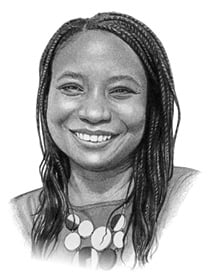
Trump vs. South Africa
U.S. government escalates feud with Pretoria by cutting aid and offering refugee status to Afrikaners.
Tesla and SpaceX CEO Elon Musk and U.S. President Donald Trump appear during an executive order signing in the Oval Office at the White House on Feb. 11 Andrew Harnik/Getty Images
Welcome to Foreign Policy’s Africa Brief.
The highlights this week: EU bars critical minerals from Rwanda, Sudan’s army plans interim government in Khartoum, and former Trafigura executive convicted in Angola fraud case.
Welcome to Foreign Policy’s Africa Brief.
The highlights this week: EU bars critical minerals from Rwanda, Sudan’s army plans interim government in Khartoum, and former Trafigura executive convicted in Angola fraud case.
If you would like to receive Africa Brief in your inbox every Wednesday, please sign up here.
Why No One Wins in Trump’s War With South Africa
U.S. President Donald Trump cut aid to South Africa last week due to what he described as “unjust racial discrimination” against Afrikaners over the country’s land reform law. Trump also cited South Africa’s International Court of Justice genocide case against Israel.
An anti-South Africa stance was predicted to be a key feature of a second Trump administration’s foreign policy given Pretoria’s friendly relations with Russia and China, but few would have foreseen an executive order awarding refugee status to Afrikaners—the white South Africans descended mainly from Dutch settlers who dominated the country’s politics and led the apartheid regime from 1948 to 1994.
South African media queried whether Trump was even aware that Afrikaners differed from English-speaking whites like his South African-born billionaire advisor Elon Musk, whose criticisms of the South African government appear to be the source of the idea.
“It is ironic that the executive order makes provision for refugee status in the US for a group in South Africa that remains amongst the most economically privileged, while vulnerable people in the US from other parts of the world are being deported and denied asylum despite real hardship,” South Africa’s foreign ministry responded in a statement. It said the order lacked “factual accuracy” and was based on “a campaign of misinformation and propaganda.”
South African President Cyril Ramaphosa earlier said that his country would “not be bullied.” But the African National Congress (ANC) party has been unusually measured in its subsequent responses. Pretoria has said it will send a delegation to Washington that’s expected to include senior cabinet ministers and business leaders to explain its new law, worried that any further actions could rattle investors and tank South Africa’s economy.
Land reform is a crucial issue for the ANC, having lost its long-standing majority in last year’s elections and under pressure to address racial inequality.
South Africa’s largely white-controlled commercial agricultural sector generates employment and exports but contributes little to GDP. It contributed just 2.5 percent in 2023, according to the latest available data.
White people occupied about 62 percent of all top management posts in South Africa, despite representing less than 30 percent of the country’s professionally qualified workers. Their Black counterparts held about 17 percent of such posts in 2023 (despite them being roughly 50 percent of the professionally qualified population), according to South Africa’s Commission for Employment Equity.
Just 3 percent of the country’s biggest firms were controlled by Black South Africans in 2019.
More than three decades after the end of apartheid, about 70 percent of South Africa’s farmland is still owned by white South Africans, who make up 7 percent of the population. Their Black counterparts account for 80 percent of the population and own just 4 percent, making South Africa the world’s most unequal nation both in land use and income distribution using the Gini ratio—an index that measures inequality.
Ramaphosa last month signed an expropriation bill into law—which he says is similar to eminent domain in the United States, allowing the government to expropriate private land for public use. The law is aimed at addressing the disparity by allowing land to be seized without compensation only in circumstances where land is unused, abandoned, or “in the public interest.”
The idea of fleeing to the United States as refugees was rejected by white South African groups that had for years lobbied Republicans about persecution.
“We have to state categorically: We don’t want to move elsewhere,” said Kallie Kriel, the CEO of Afrikaner lobby group AfriForum, who blamed the South African government for having attracted Trump’s attention. “We did not accuse the government of large-scale race-based land grabs, or distribute false information in this regard,” Flip Buys, head of South Africa’s Solidarity Movement, a lobby group that claims to represent 2 million Afrikaners, said at a joint press conference on Saturday. “We did not and will not ask for sanctions against South Africa, or that funds for vulnerable people be cut off by the U.S. government.”
“President Trump cannot mention not even a single farm that was confiscated or expropriated from a single white farmer,” Mzwanele Nyhontso—South Africa’s minister of land reform and rural development who is also president of the Pan Africanist Congress, a small party within the governing coalition—told the BBC.
U.S. Secretary of State Marco Rubio’s shock boycott of the G-20 meeting in Johannesburg later this month will negatively impact South Africa’s push for consensus on reforms to African debt sustainability and global financial infrastructures.
“South Africa is doing very bad things. Expropriating private property. Using G20 to promote ‘solidarity, equality, & sustainability.’ In other words: DEI and climate change,” Rubio posted on social media.
Importantly, Musk has faced difficulty getting regulatory approval to expand his satellite internet provider Starlink into South Africa, since the country requires at least 30 percent local ownership under its Black empowerment law. Musk on his social media platform X accused South Africa of having “openly racist laws.”
But there’s far more at play. Starlink currently operates or will soon launch in more than a dozen African nations but faces complaints in nearly all countries of unfair competition since it doesn’t employ any locals. If Musk were to adhere to the rule in South Africa, this would strengthen demands in other nations, particularly Kenya, that Starlink comply with local laws. Kenya’s labor courts have a history of U.S. tech giants.
Critics claim Musk’s business interests are reshaping U.S. foreign policy. “This isn’t complicated to understand. Elon Musk’s Starlink was denied a license in South Africa and so he’s been on a revenge campaign to get them to reverse their decision,” Sen. Chris Murphy responded to Rubio’s post. “Our foreign policy is now just billionaire business tactics. What a heartbreaking corruption.”
Ultimately, the Trump administration’s aggressive stance toward South Africa, coupled with the erosion of the President’s Emergency Plan for AIDS Relief (PEPFAR)—a successful soft-power tool launched by the Republican Party under President George W. Bush—will almost certainly lessen the United States’ ability to counter China.
China’s influence in Africa has been key to its dominance of the critical minerals global supply chain. South Africa is the continent’s biggest economy and its most industrialized. Washington needs Pretoria—which is a key source for platinum and rare-earth metals—as an ally if it wants to maintain any kind of major influence in Africa or reverse China’s hold on global minerals used in the AI tech race.
This hasn’t gone unnoticed by investors. South Africa is the United States’ largest trading partner in the region that’s important as a strategic gateway into Africa, Kuseni Dlamini, the head of the American Chamber of Commerce in South Africa, told Bloomberg. “What’s at stake here is much bigger than the withdrawal of aid,” he said.
The Week Ahead
Wednesday, Feb. 12, to Thursday, Feb. 13: The African Court on Human and Peoples’ Rights holds a hearing in Arusha, Tanzania, on a case brought by the government of the Democratic Republic of the Congo against Rwanda for rights violations.
Saturday, Feb. 15, to Sunday, Feb. 16: The African Union Commission elects a new chairperson.
Wednesday, Feb. 19: The U.N. Security Council discusses sanctions and its mission in Libya.
Thursday, Feb. 20, to Friday, Feb. 21: G-20 foreign ministers’ meeting held in Johannesburg, South Africa.
What We’re Watching
EU halts Rwanda imports. The European Union has temporarily stopped imports of Rwandan critical minerals after pressure mounted on the EU to suspend a deal signed with Rwanda last February to help the country develop its minerals extraction supply chain and sustainability. Rwanda’s coltan exports for example come mostly from Congo’s Rubaya mine—captured in April 2024 by Rwanda-backed M23—according to a U.N. report.
The U.N. Human Rights Council agreed on Friday to launch an investigation into serious abuses being carried out in the eastern Democratic Republic of the Congo (DRC). A resolution text “firmly” condemned “the military and logistic support of the Rwandan defense force to the March 23 Movement.”
Last week, M23 seized Nyabibwe, about 60 miles from South Kivu’s provincial capital, Bukavu, despite declaring a unilateral cease–fire. Nyabibwe produces gold and coltan, fitting into M23’s pattern of seizing territories with lucrative coltan mines. If M23 seizes Bukavu, the rebel group can consolidate North Kivu and South Kivu into a breakaway region, meaning that Rwanda would no longer share a border with a territory controlled by the Congolese government.
Peace talks that took place in Tanzania on Saturday ended with the regional Southern African Development Community and East African Community urging all warring parties to hold peace talks within five days. The outcome of the crisis summit was, in its substance, weak. Leaders did not outright denounce Rwanda’s actions but called for the “lifting of Rwanda’s defensive measures/disengagement of forces from the DRC,” according to a circulated statement.
The Nairobi peace process, which was meant to disarm groups like M23, has stalled. The DRC has more than 7 million internally displaced people.
Sudan plans to form government. Sudan’s military chief, Abdel Fattah al-Burhan, announced he would form a new wartime government after he fully retakes the capital, Khartoum, from the paramilitary Rapid Support Forces (RSF). “We can call it a caretaker government, a wartime government, it’s a government that will help us complete what remains of our military objectives, which is freeing Sudan from these rebels,” Burhan said Saturday. Burhan has called for diplomatic support of this new “technocratic” government, but it’s likely to be filled with the military and its allies.
A coalition of Sudanese political factions reportedly allied with the RSF said they would form a rival parallel government in opposition to Burhan in Port Sudan. The prospects of a civilian-led democratic government in Sudan seem increasingly bleak.
Nigeria’s emergency HIV fund. The Nigerian government has allocated 4.8 billion naira (about $3.2 million) to purchase 150,000 HIV treatment kits over the next four months as a stopgap for threatened PEPFAR programs. This is far short of what’s needed, because about 1.8 million Nigerians living with HIV are treated through PEPFAR.
Trump ordered a 90-day pause on U.S. foreign aid, and despite a last-minute waiver for HIV/AIDS medicines, many programs remain shut. Nigeria’s parliament launched a committee to draft a longer-term plan for PEPFAR-funded health programs in case of a permanent cutoff from Washington.
Haiti mission deficit. The U.S. has frozen over $13 million of the $15 million it pledged to the Kenya-led mission tackling gangs in Haiti. The fund deficit is part of Trump’s 90-day freeze on foreign aid. Canada is the mission’s primary funder. More than half of the $110 million paid into a U.N. trust fund for the mission has come from Canada, according to the U.N.
This Week in Energy
Trafigura former executive convicted. Multinational commodities giant Trafigura has been fined 3 million Swiss francs (about $3.3 million) and ordered to pay back more than $140 million in restitution for its part in an Angolan fraud case. Mike Wainwright, the former chief operating officer of Trafigura, was convicted last month by a Swiss court for bribery and corruption in Angola. Wainwright, who worked at Trafigura until last year, was sentenced to 32 months in prison, of which 20 months are suspended, for facilitating more than 5 million euros in bribes between 2009 and 2011 to secure a near-monopoly of contracts with Angola’s state oil company, Sonangol.
The conviction is important, because Trafigura is part of a consortium alongside Mota-Engil and Vecturis awarded a 30-year concession to run the Biden administration’s signature Lobito Corridor in Angola. The company says it will appeal. Trafigura, headquartered in Singapore but with a large presence in Geneva, has also been tainted by allegations of graft involving a near-monopoly on oil deals in Zimbabwe.
What We’re Reading
Egypt’s bind on Trump’s Gaza plan. In Foreign Policy, Mahmoud Salem argues that the historically warm relationship between Egyptian President Abdel Fattah al-Sisi and Trump may fracture quickly if Trump pursues his controversial plan for Gaza. “Sisi has spent the past year crafting countermeasures to avoid being cornered. For Egypt, the task is clear: find a way to survive Trump’s ambitions without sacrificing its own stability or sovereignty,” Salem writes.
Namibia’s founding father. Sam Nujoma and his South West Africa People’s Organization, known as SWAPO, led Namibia to independence from apartheid South Africa in 1990. He died on Saturday at the age of 95. “Nujoma’s ability to unify a nation of three million people—across 10 ethnic and linguistic communities—won him many admirers,” write Wycliffe Muia and Frauke Jensen for the BBC. He was somewhat of a democratic autocrat. “Pointing a finger at whoever dared openly question or criticise, he would sometimes lose his countenance and hurl insults. He openly abhorred same-sex relationships, but never went as far as changing the constitution or the law to make them illegal.”
Nosmot Gbadamosi is a multimedia journalist and the writer of Foreign Policy’s weekly Africa Brief. She has reported on human rights, the environment, and sustainable development from across the African continent. X: @nosmotg
More from Foreign Policy
-

Russian President Vladimir Putin looks on during a press conference after meeting with French President in Moscow, on February 7, 2022. The Domino Theory Is Coming for Putin
A series of setbacks for Russia is only gaining momentum.
-

The container ship Gunde Maersk sits docked at the Port of Oakland on June 24, 2024 in Oakland, California. How Denmark Can Hit Back Against Trump on Greenland
The White House is threatening a close ally with a trade war or worse—but Copenhagen has leverage that could inflict instant pain on the U.S. economy.
-

Donald Trump speaks during an event commemorating the 400th Anniversary of the First Representative Legislative Assembly in Jamestown, Virginia on July 30, 2019. This Could Be ‘Peak Trump’
His return to power has been impressive—but the hard work is about to begin.
-

US Secretary of State Marco Rubio greets employees at the State Department in Washington, DC, on January 21, 2025. The National Security Establishment Needs Working-Class Americans
President Trump has an opportunity to unleash underutilized talent in tackling dangers at home and abroad.



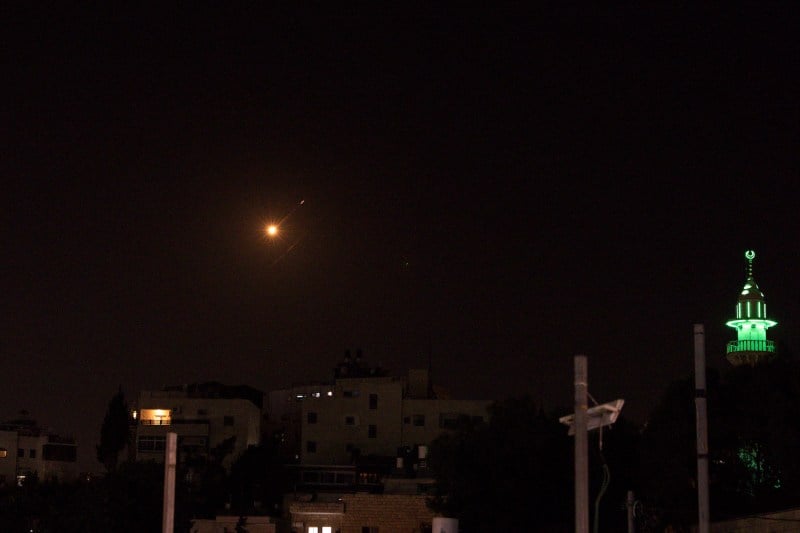
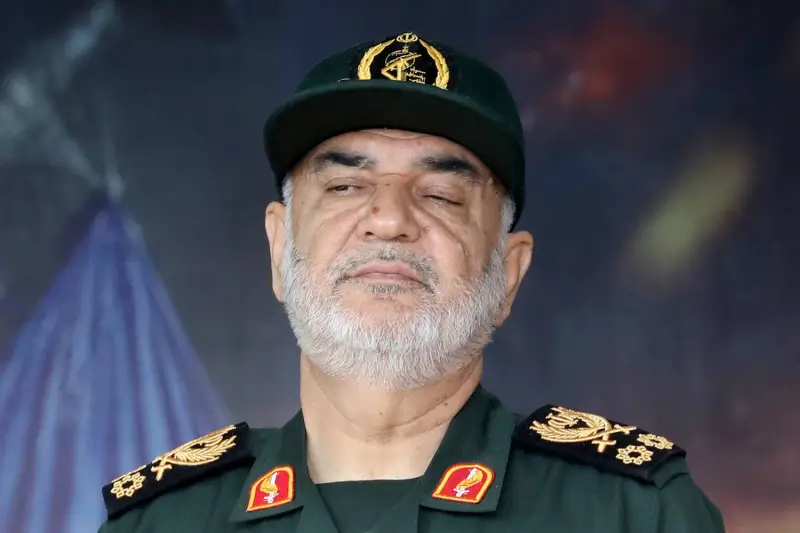
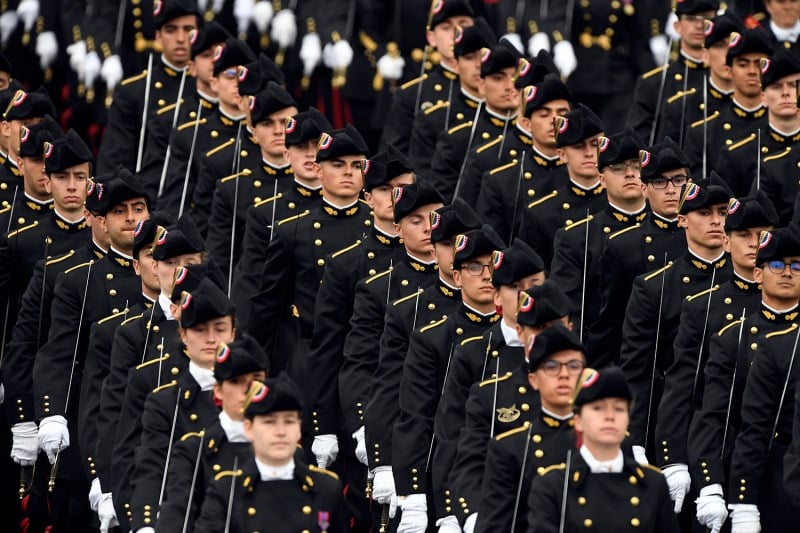
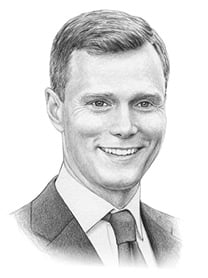
Join the Conversation
Commenting on this and other recent articles is just one benefit of a Foreign Policy subscription.
Already a subscriber?
.
Subscribe
Subscribe
View Comments
Join the Conversation
Join the conversation on this and other recent Foreign Policy articles when you subscribe now.
Subscribe
Subscribe
Not your account?
View Comments
Join the Conversation
Please follow our comment guidelines, stay on topic, and be civil, courteous, and respectful of others’ beliefs.
Change your username |
Log out
Change your username:
CANCEL
Confirm your username to get started.
The default username below has been generated using the first name and last initial on your FP subscriber account. Usernames may be updated at any time and must not contain inappropriate or offensive language.